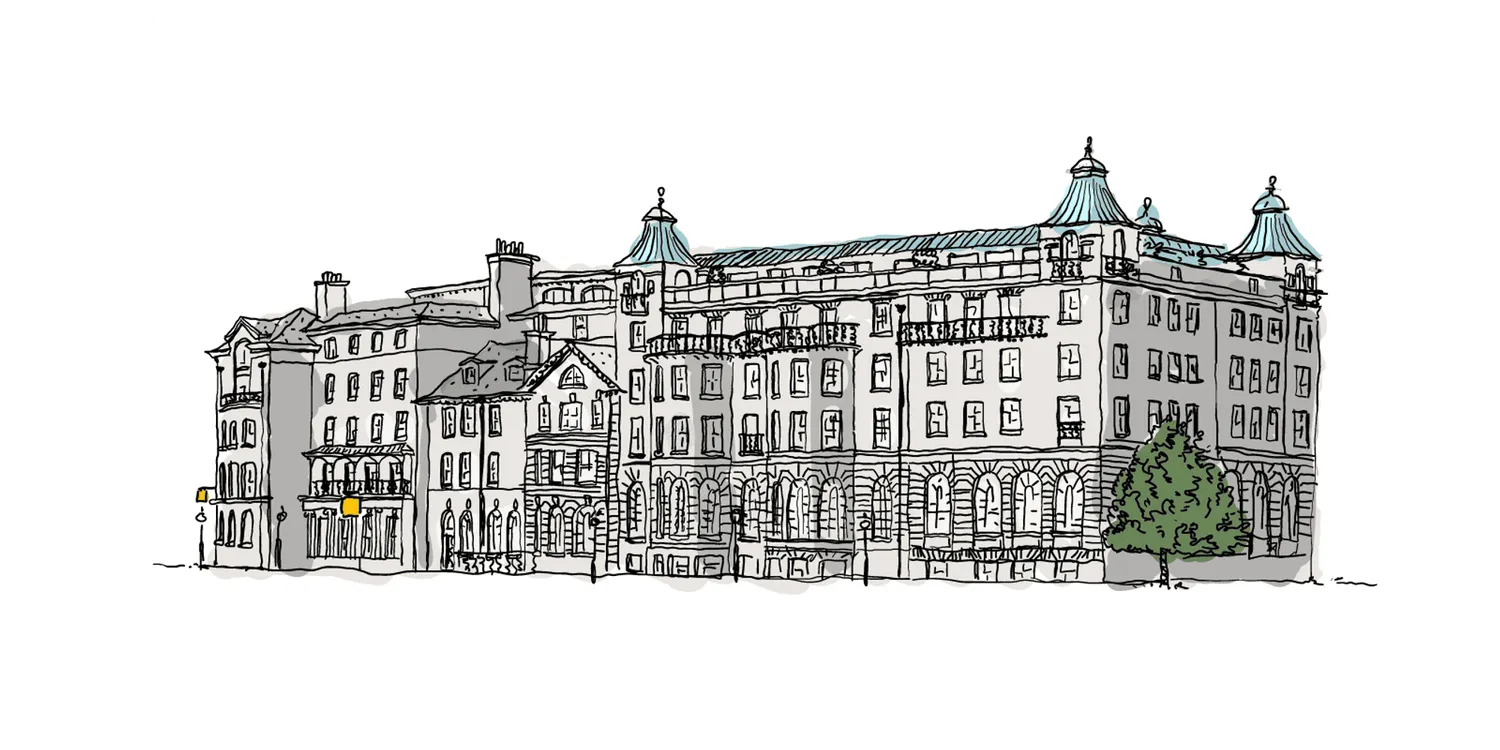02/12/2019
A Hotel for Book Lovers
As autumn leaves skitter into the lobby of the city’s smartest hotel, find a reader’s retreat among Cambridge’s literary legends.
Literature is Cambridge’s lifeblood, and the city has educated and inspired some of the world’s top writing talent from Sylvia Plath to Stephen Fry. While the Bloomsbury Group may be long gone, the city is rarely short of writers to tell its stories. Over the years, John Simpson has bought reading material at antique bookseller G. David’s, Tim Hayward rescued local institution Fitzbillies and Zadie Smith observed that the ‘joy’ of Cambridge was its abundance of ‘people reading books in a posh place’.
I can think of far worse ways to pass the time than reading books in a posh place, and the University Arms seems purpose-built. Once a coaching inn, the hotel turned into one of the UK’s biggest openings last year after an £80 million refurbishment by architect John Simpson and interior designer Martin Brudnizki, who brought a strong sense of nostalgia for halcyon days spent at school and plenty of references to the university after which it’s named. Collegiate stripes on the corridor carpets remind you of the repp tie you packed to wear at supper; storage bins in the bedrooms look like boarding school tuckboxes. All of it is accented with a shade of duck-egg that lands carefully in between Cambridge blue and Fortnum’s blue. The Library, a relaxed living room, is set around an original fireplace where afternoon tea is served (I can think of no better meal to pair with a book – nothing goes cold, everything can be eaten with one hand).
The hotel’s suites are named after local scholars, most of whom attended the university. The Stephen Hawking suite has a grand, Regency-style curved bow window overlooking Parker’s Piece, where cycle paths cut the green space into quarters, and light-filled bedrooms have cosy corners for binge-reading poetry and stories and science. There are even desks for when inspiration strikes.
Whilst gorgeous, 10 out of the 12 suites are named after men, the only exceptions being Virginia Woolf and Rosalind Franklin. If anyone deserves ‘a room of her own’ it’s Woolf, but considering this year marks 150 years since women were accepted at Cambridge University, their presence seems to be something of an afterthought. The cocktail menu (similarly named after local legends) doesn’t namecheck a single woman, and bathrooms are filled with products by Dr Harris, a ‘specialist in gentlemen’s grooming’. In such a place, it was a disappointing discovery, but not a dealbreaker. Balance the scales at The Rising Tide: Women at Cambridge exhibition at the University Library from October 14.
Reviewed by Anna Prendergast
